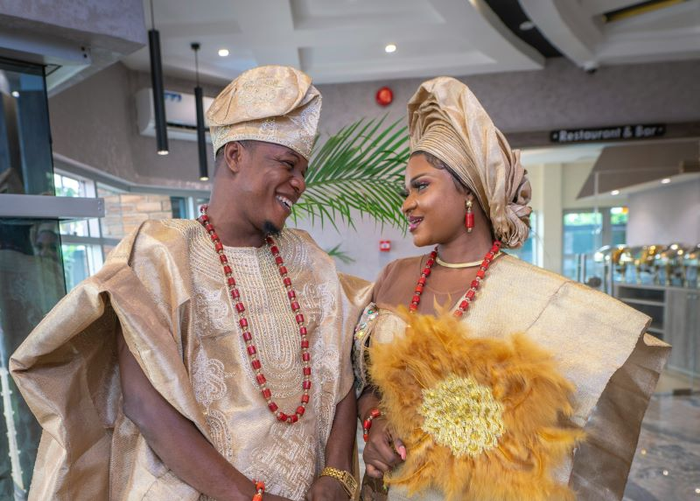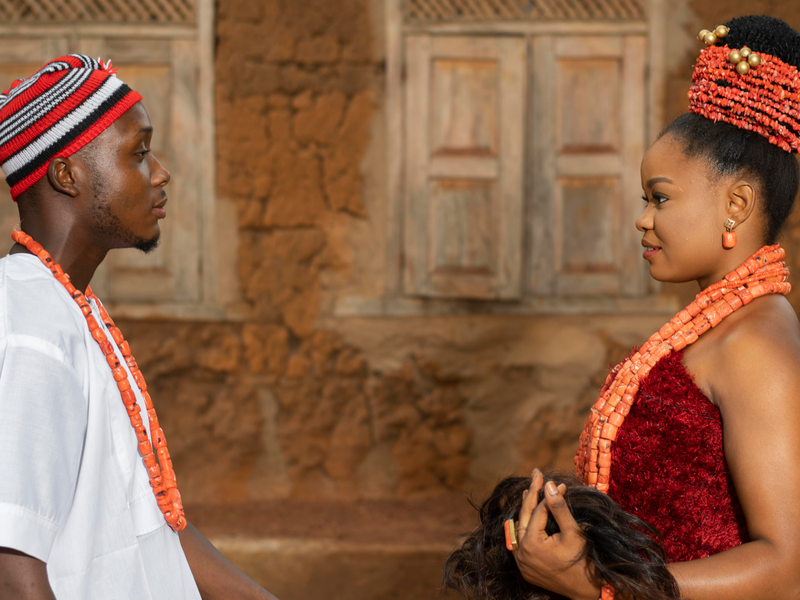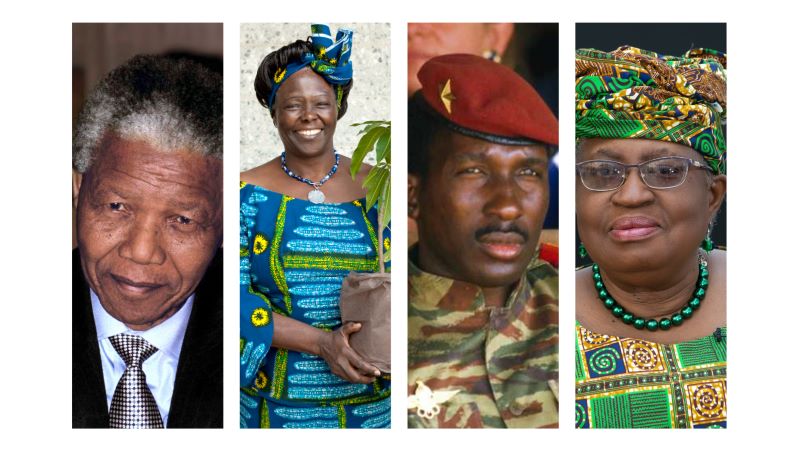Image by Freepik
For Black communities, the conversation surrounding marriage takes on a unique complexity. Beyond navigating societal norms and personal preferences, Black couples often grapple with the additional layer of navigating cultural nuances within their diverse communities. From navigating intricate wedding traditions to reconciling differing societal expectations, intercultural marriages within Black communities offer a fascinating glimpse into the rich tapestry of Black identity and expression.
Historically Rooted, Culturally Diverse:
Understanding the complexities of intercultural Black marriages requires acknowledging the vast historical and cultural diversity within the Black diaspora. Black cultures and traditions vary significantly from the diverse ethnicities across Africa to the distinct experiences of Black communities in the Americas, Caribbean, and Europe. This inherent diversity influences everything from courtship rituals and family roles to religious practices and communication styles.
For example, communication styles can range from the indirect, expressive approach common in some Caribbean cultures to the more direct, pragmatic approach in specific African communities. Recognizing and navigating these cultural differences plays a crucial role in the success of intercultural relationships within Black communities.
A Spectrum of Experiences:
Intercultural marriages within Black communities encompass various experiences, each with challenges and triumphs. Here are some examples:
- Marrying Across Ethnic Lines: Couples originating from different African ethnicities, such as Yoruba and Igbo in Nigeria, might encounter differences in language, customs, and family structures. They may need to find creative ways to blend traditions and navigate potential conflicts arising from differing expectations.
- Bridging the “Oceanic Divide”: Black communities across the Atlantic also present unique challenges. For example, a Jamaican marrying a British-born Nigerian might navigate differences from colonial legacies, diverse accents, and varying degrees of proximity to ancestral cultures.
- Navigating Religious Diversity: While many Black communities share solid religious values, specific denominations and practices can differ. A Pentecostal couple from Kenya marrying Rastafarians from Jamaica might need to find common ground regarding spiritual expression and reconcile any existing beliefs about each other’s practices.

Photo by Tope. A Asokere on Unsplash
Challenges and Strategies:
Intercultural marriages within Black communities do come with their own set of challenges. Communication misunderstandings, cultural clashes, and navigating varying expectations from families and communities can create tension and conflict.
However, couples who embrace these challenges head-on can find success through several strategies:
- Open Communication: Regular, honest communication is crucial. Listening to each other’s perspectives, understanding cultural backgrounds, and openly discussing potential differences are essential for building trust and navigating challenges.
- Cultural Appreciation: Both partners should invest in understanding and appreciating each other’s cultural heritage. This involves learning about traditions, values, and communication styles to foster empathy and respect.
- Collaborative Flexibility: Finding common ground and creating new traditions can be a powerful unifying force. Negotiating expectations, exploring shared values, and establishing new rituals can strengthen the couple’s bond and celebrate their unique union.
- Seeking Support: Engaging with therapists, cultural experts, or community leaders familiar with intercultural relationships can provide valuable guidance and support.
Celebrating the Beauty:
While challenges exist, intercultural marriages within Black communities offer a powerful testament to the beauty and resilience of Black love. These unions celebrate the vast diversity within Blackness, fostering understanding and appreciation across cultural lines. They create families that bridge continents and traditions, enriching the fabric of Black communities and reminding us that unity can exist despite cultural differences.
Looking Forward:
As Black communities continue to evolve and diversify, intercultural marriages will play an increasingly significant role in shaping the future. By understanding the historical context, respecting cultural nuances, and actively navigating challenges, these couples can build strong, fulfilling relationships and contribute to a more inclusive and vibrant Black community. Remember, love has no borders, and within Black communities, the journey of love often transcends cultural boundaries, creating unique and beautiful stories along the way.

Anand Subramanian is a freelance photographer and content writer based out of Tamil Nadu, India. Having a background in Engineering always made him curious about life on the other side of the spectrum. He leapt forward towards the Photography life and never looked back. Specializing in Documentary and Portrait photography gave him an up-close and personal view into the complexities of human beings and those experiences helped him branch out from visual to words. Today he is mentoring passionate photographers and writing about the different dimensions of the art world.





